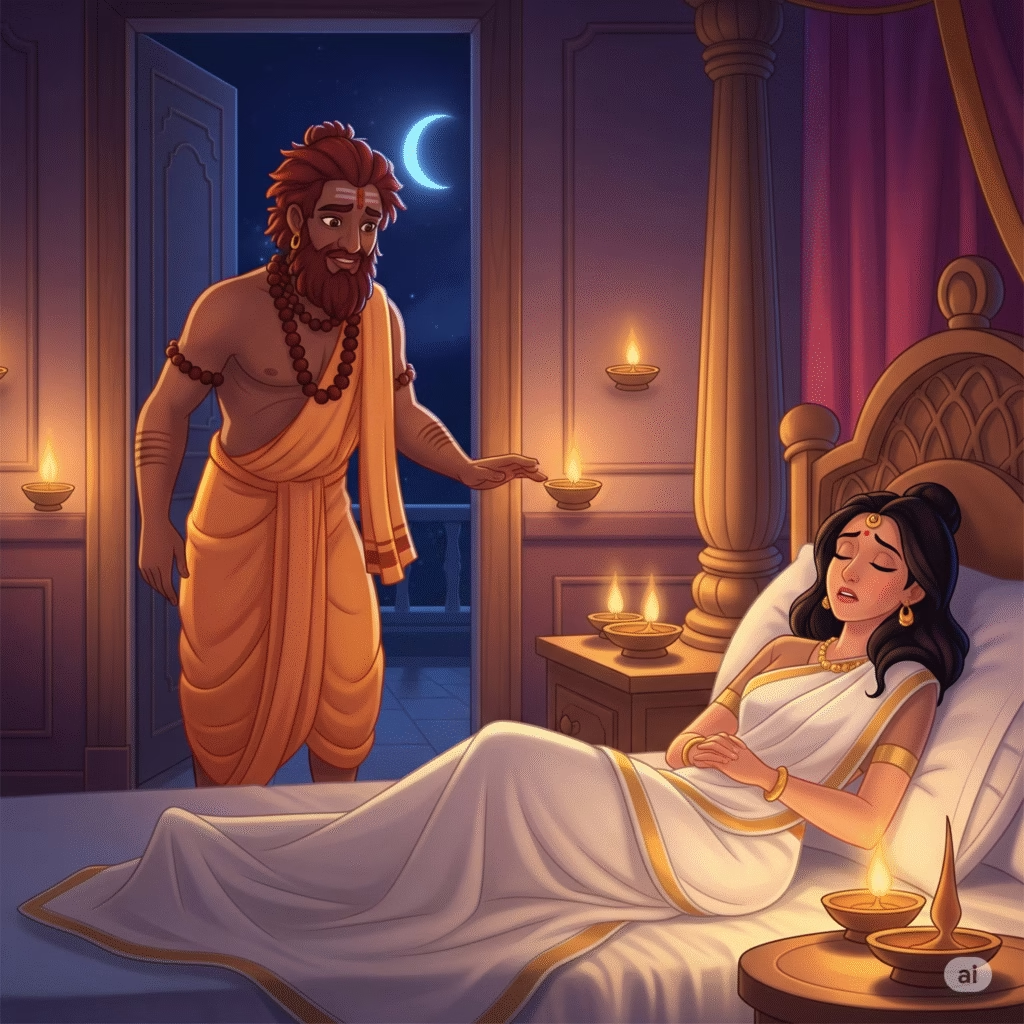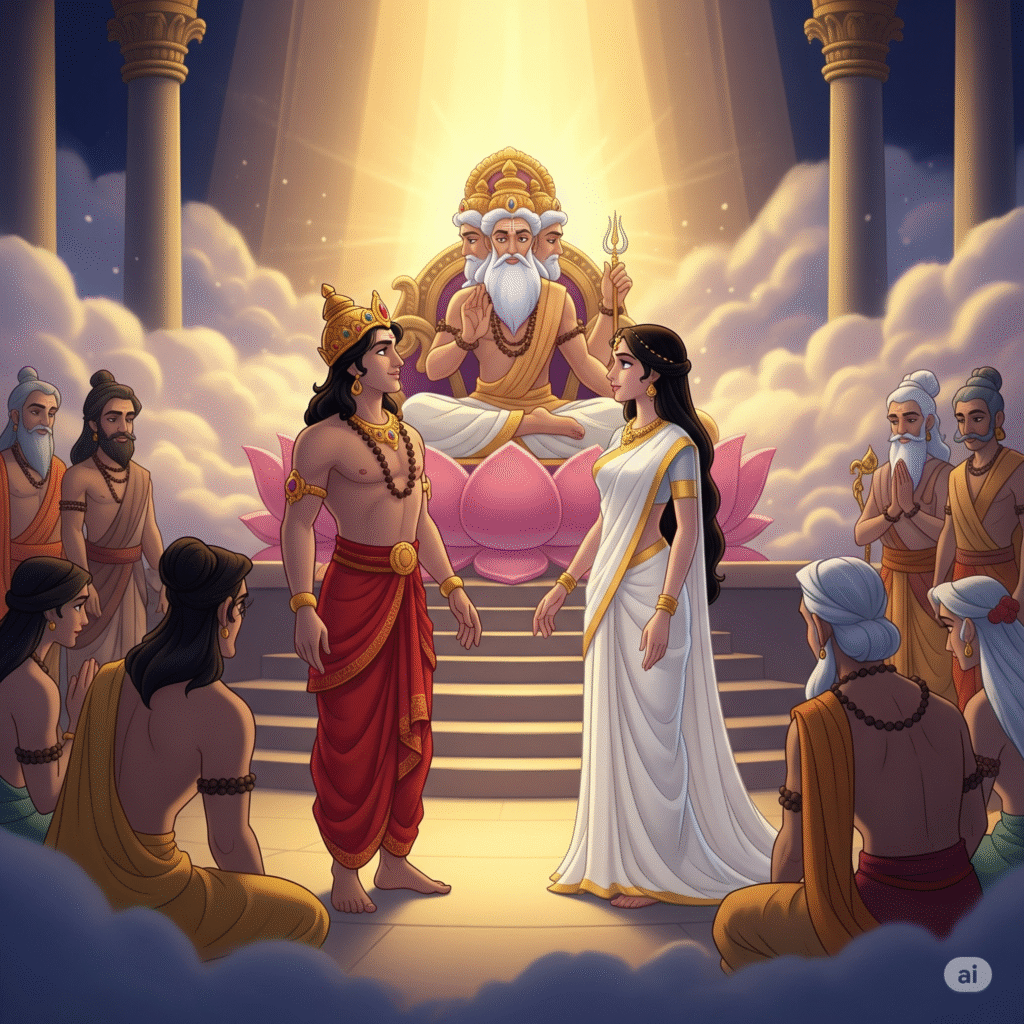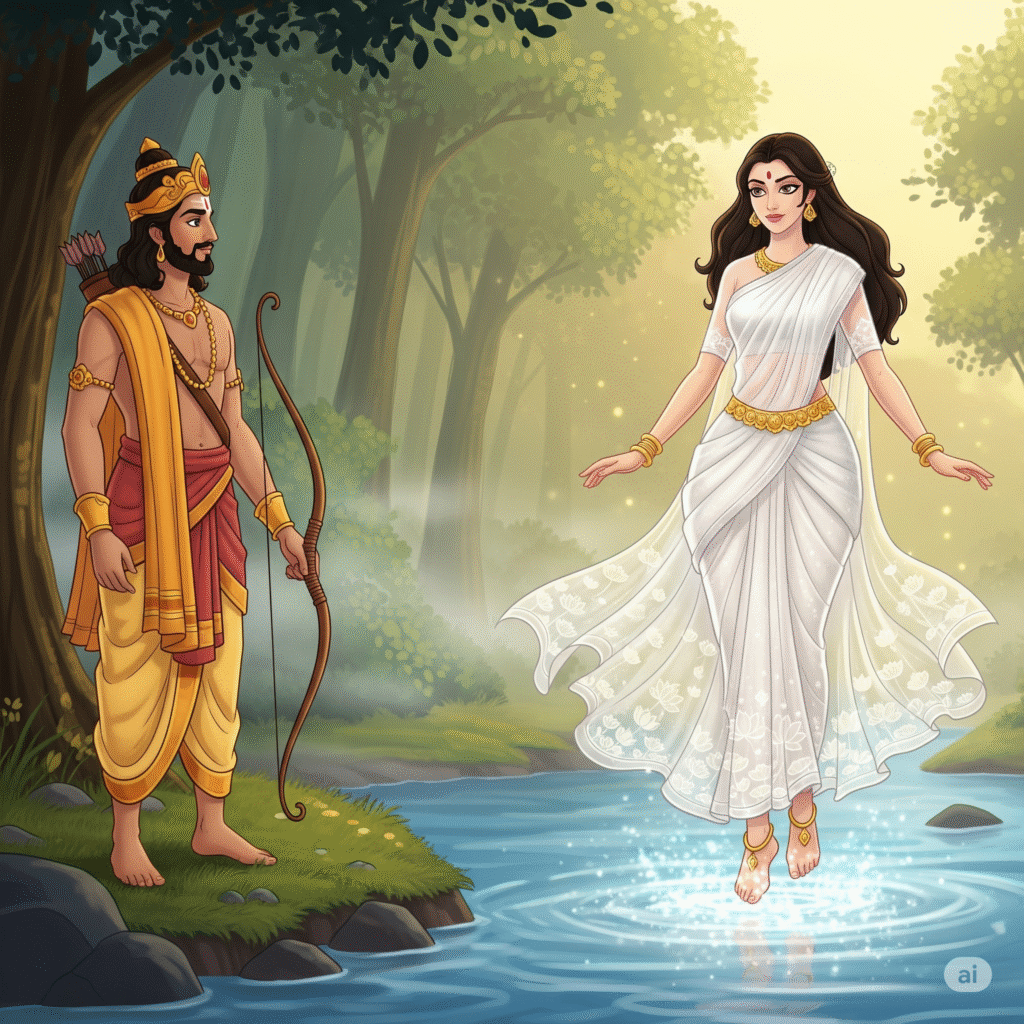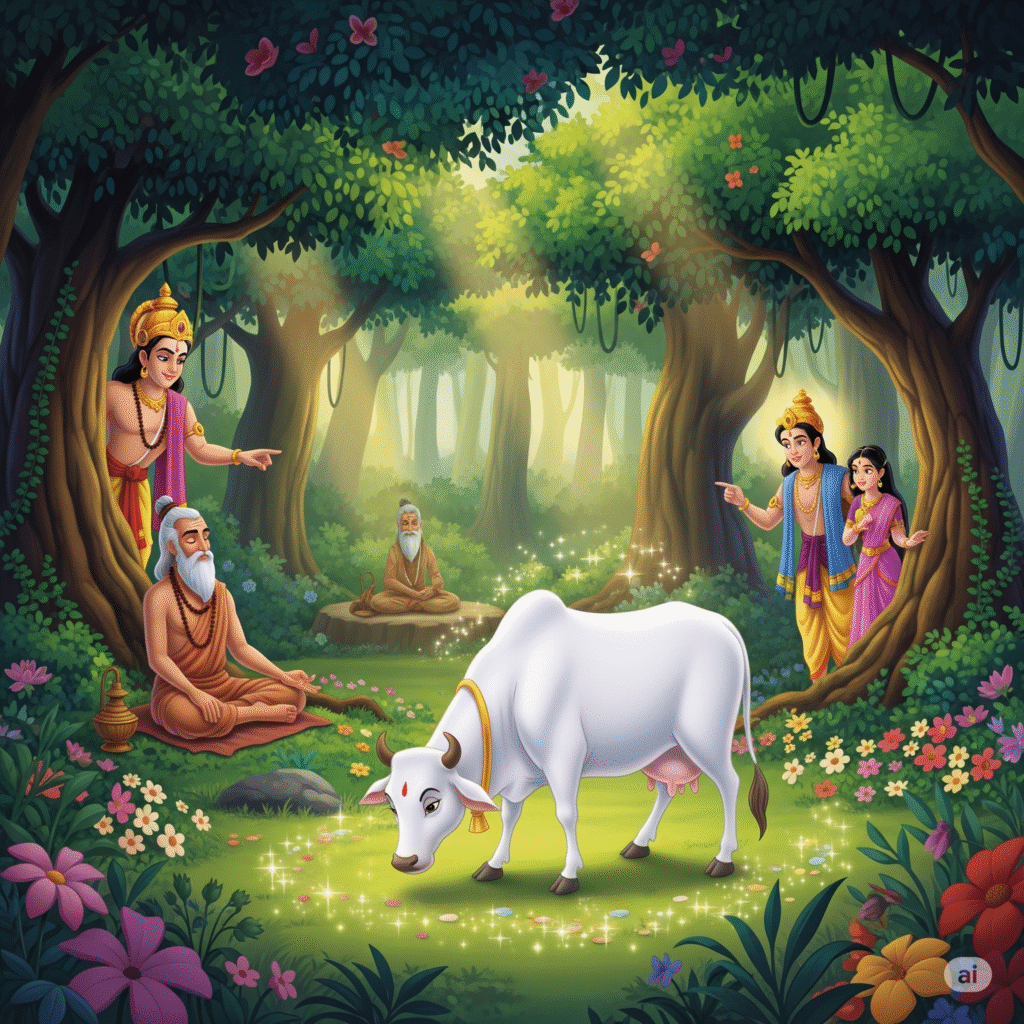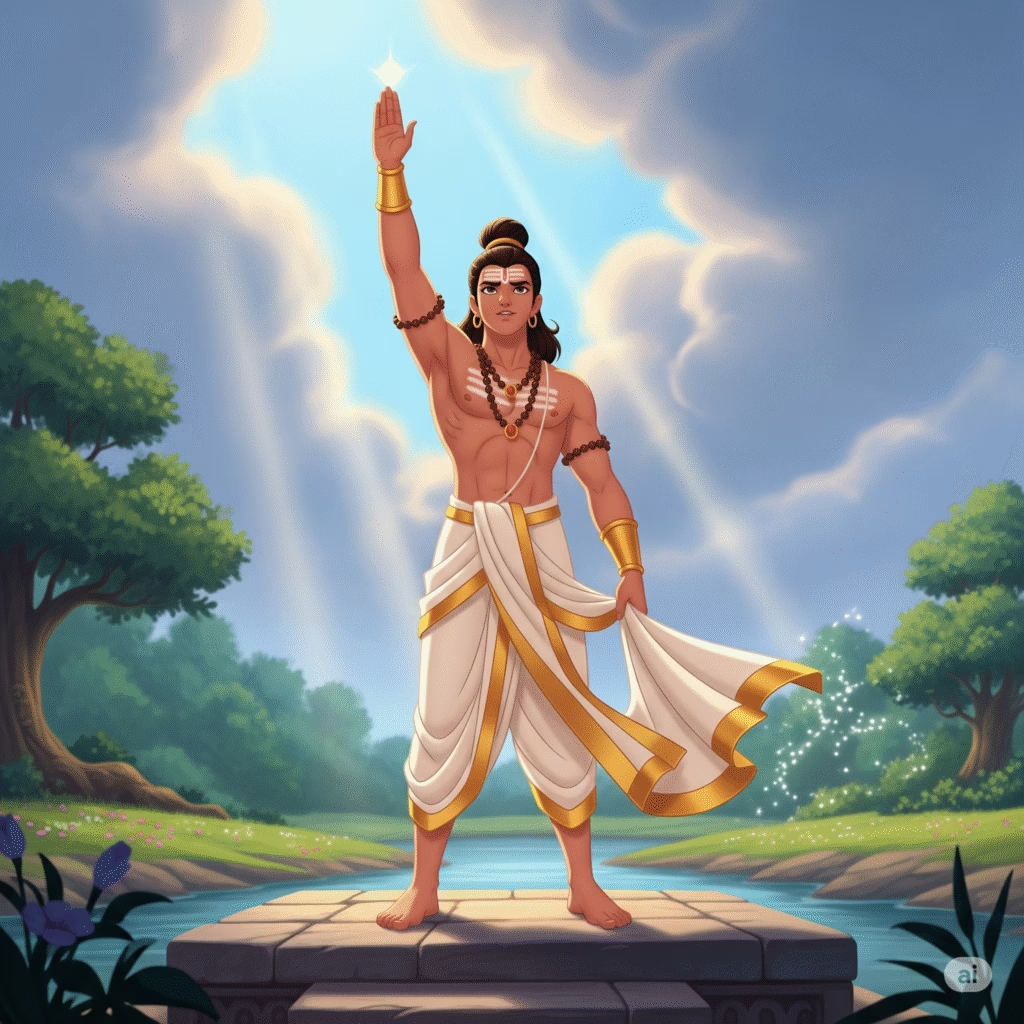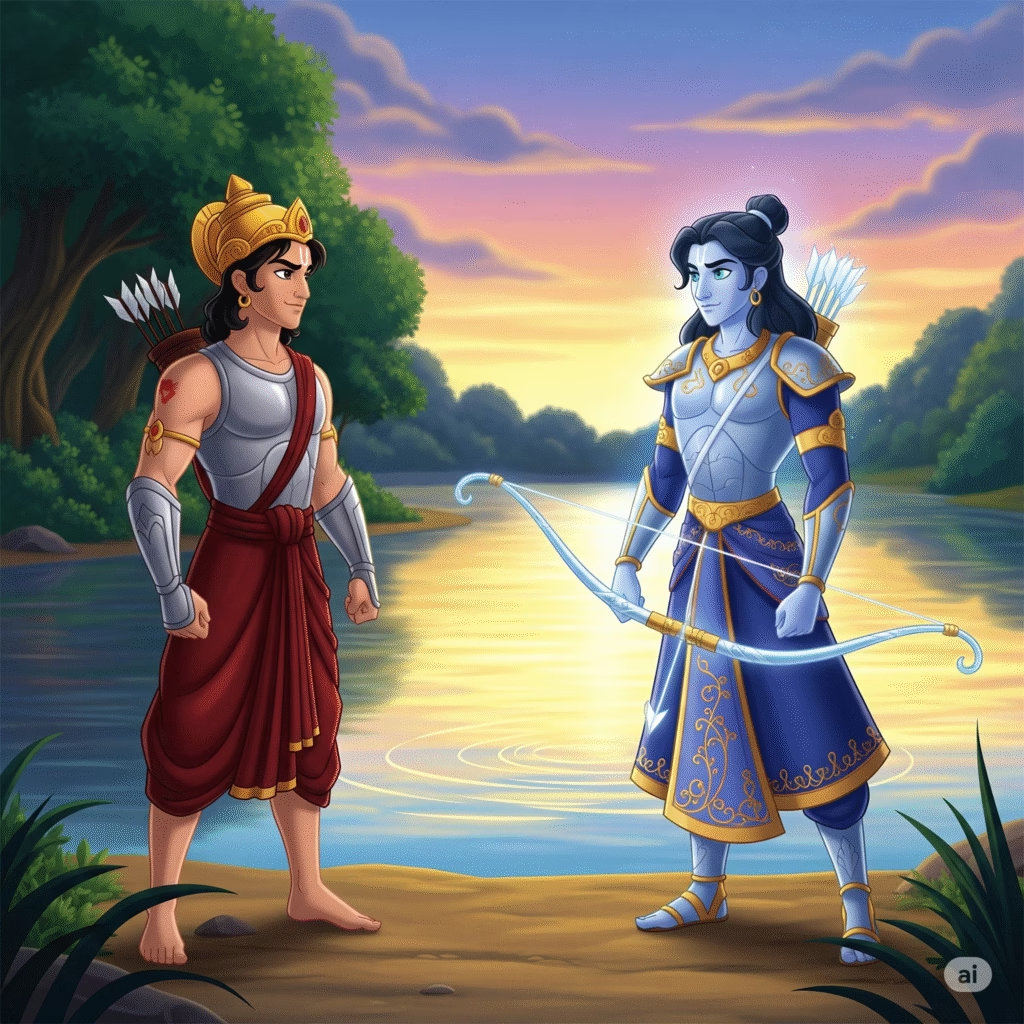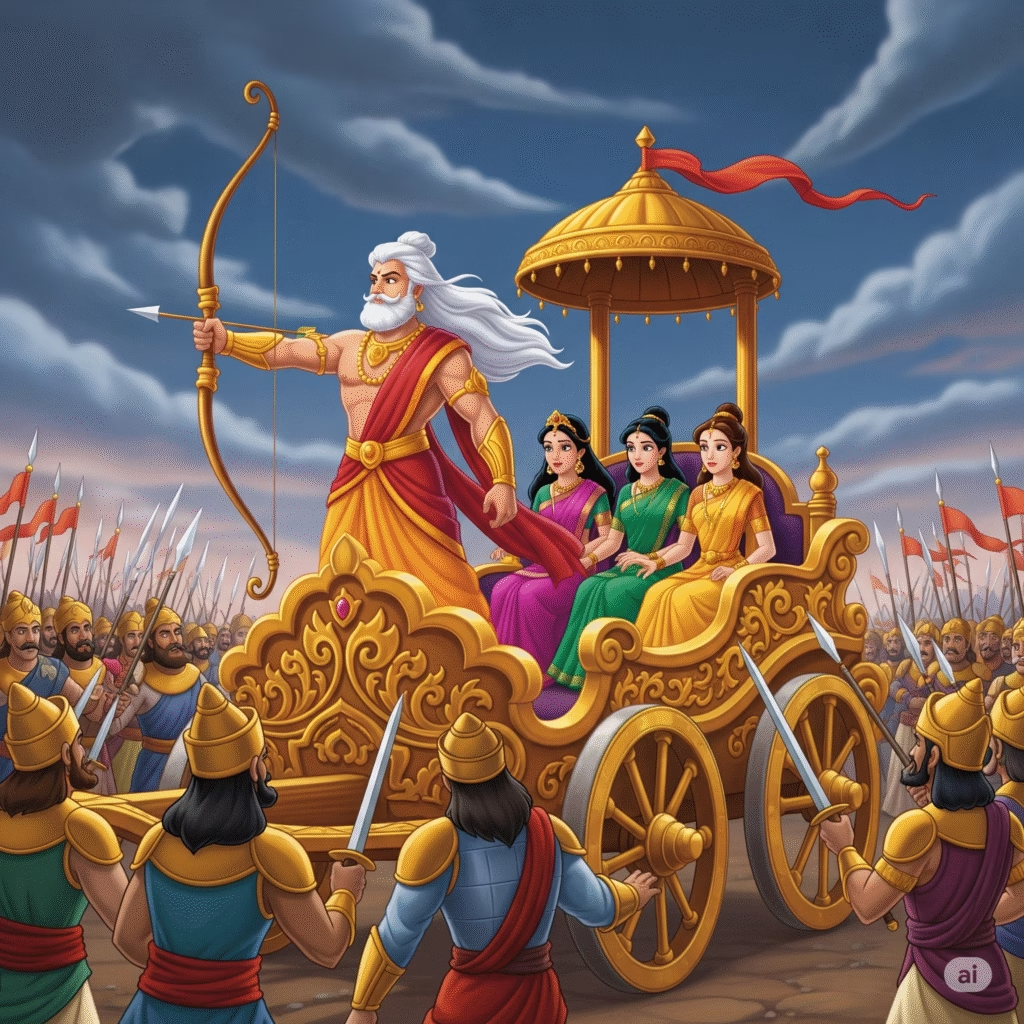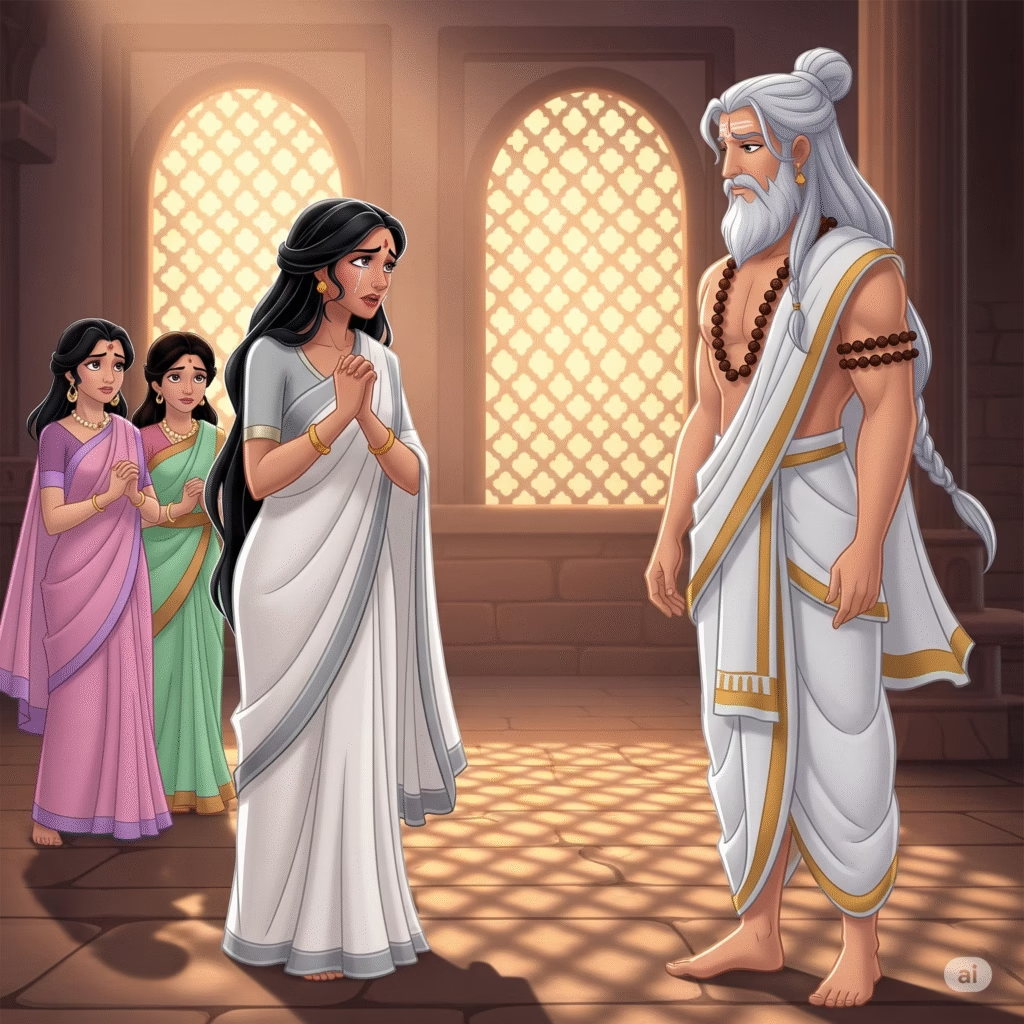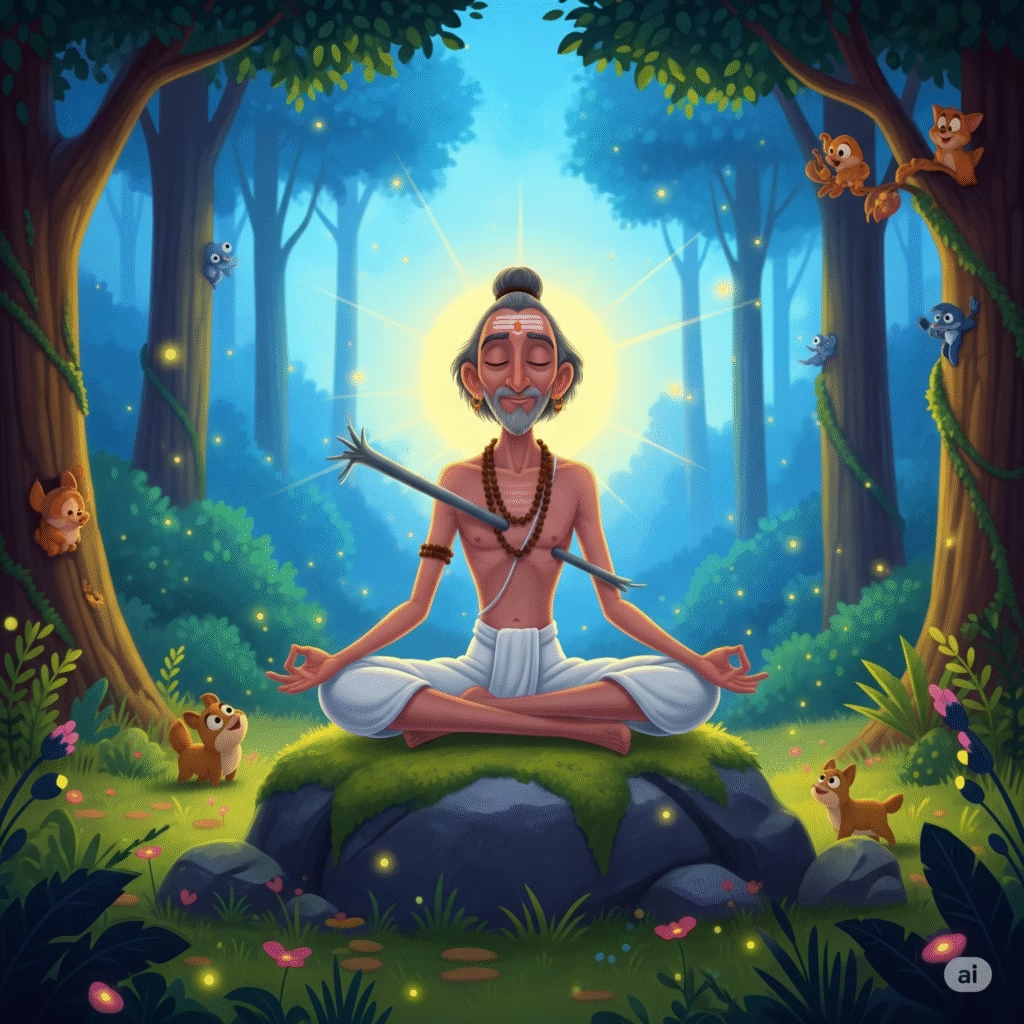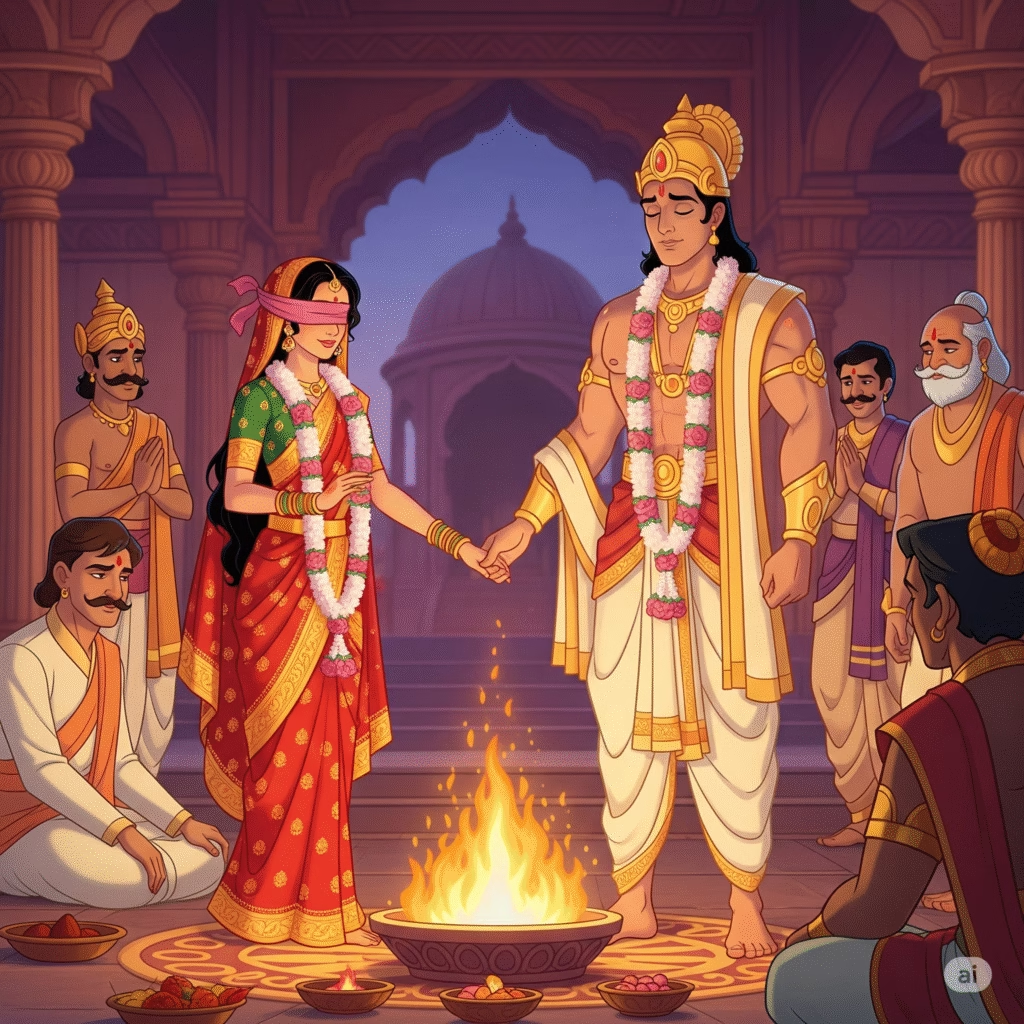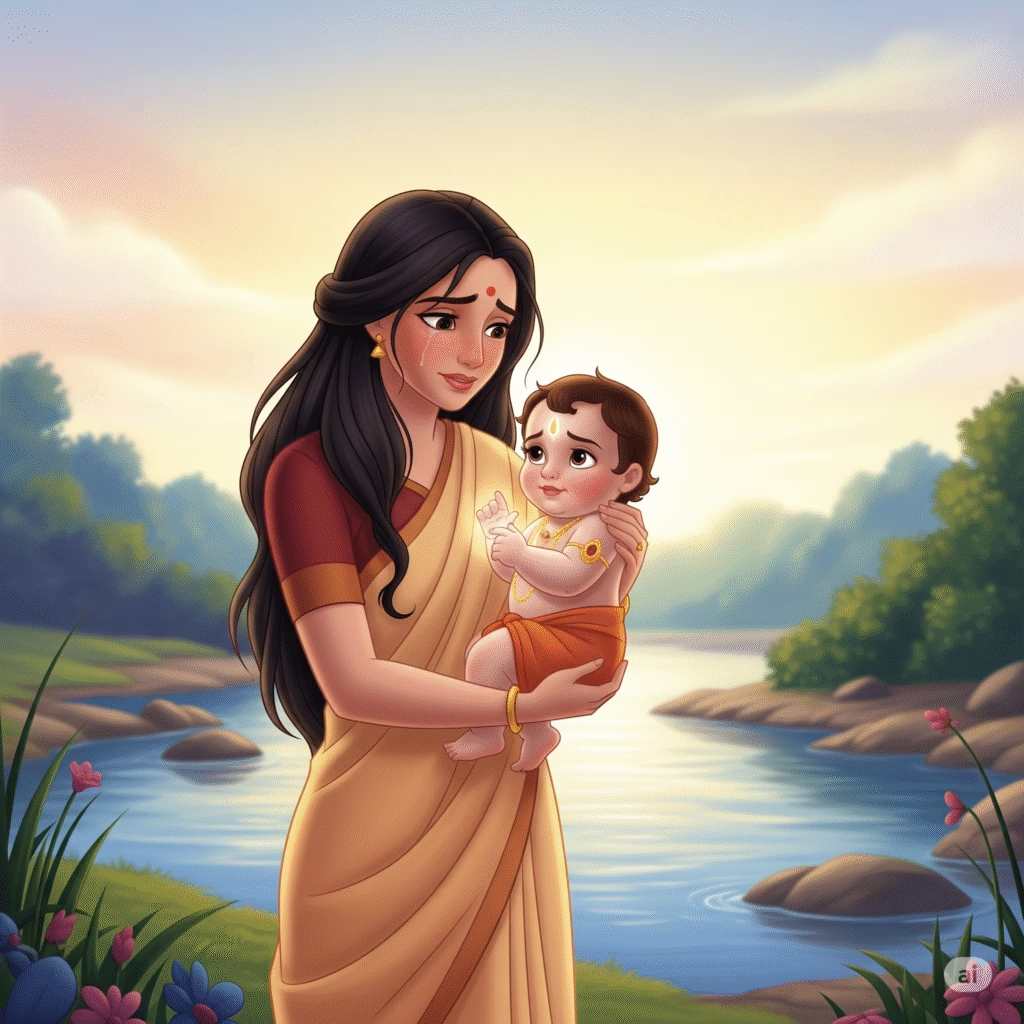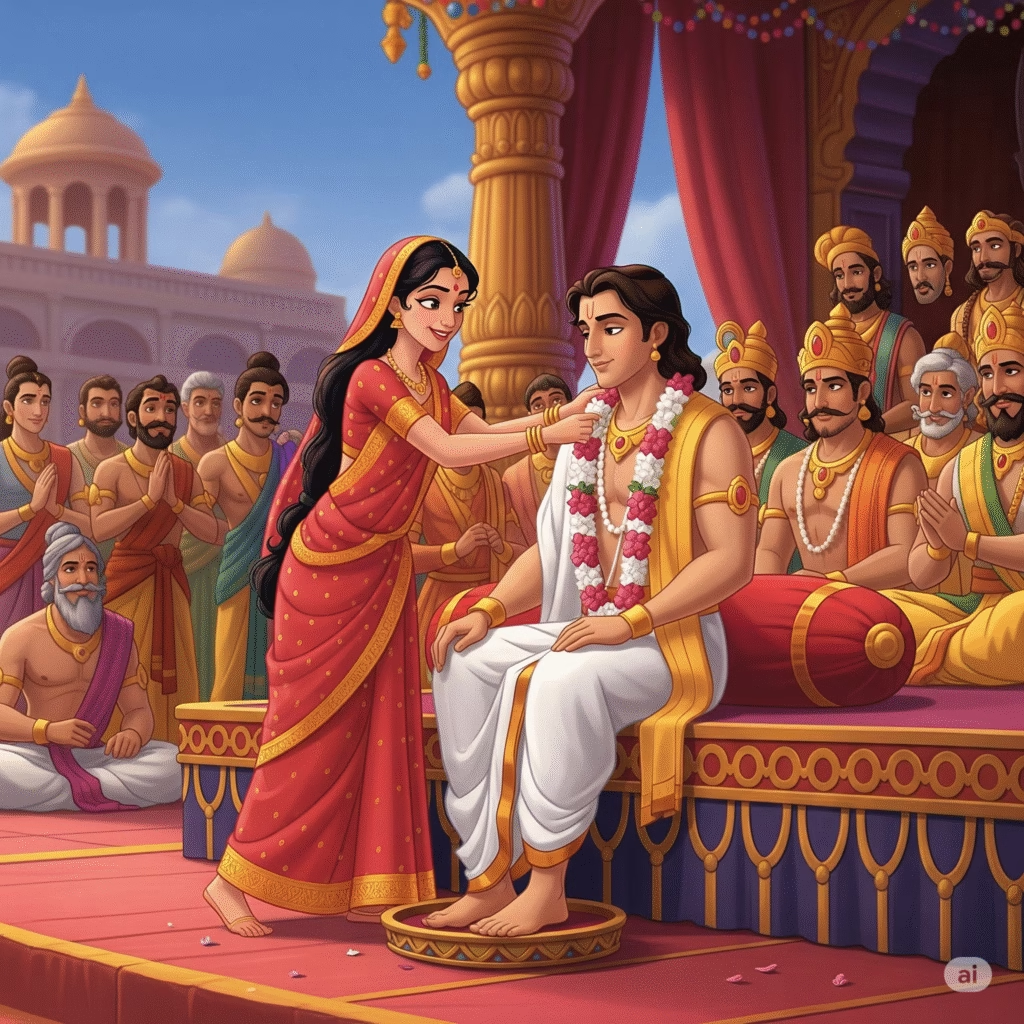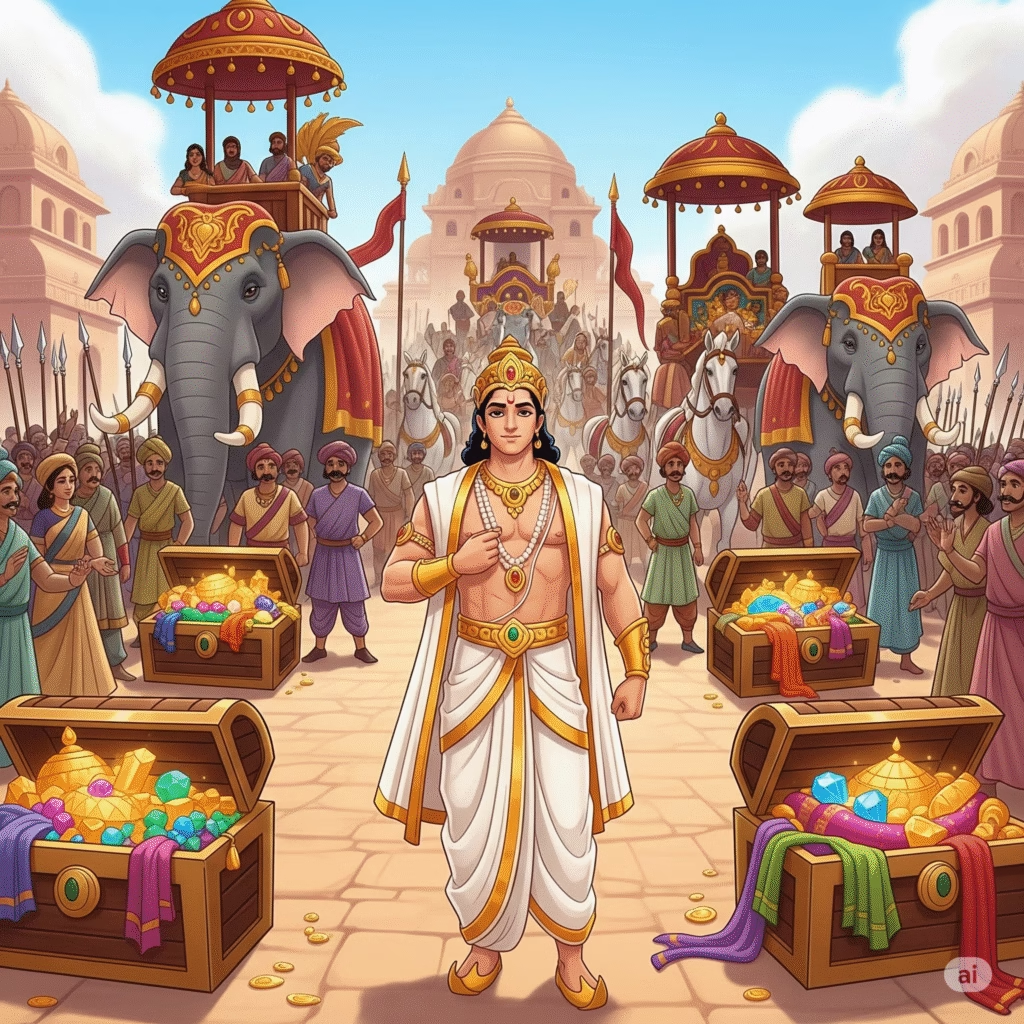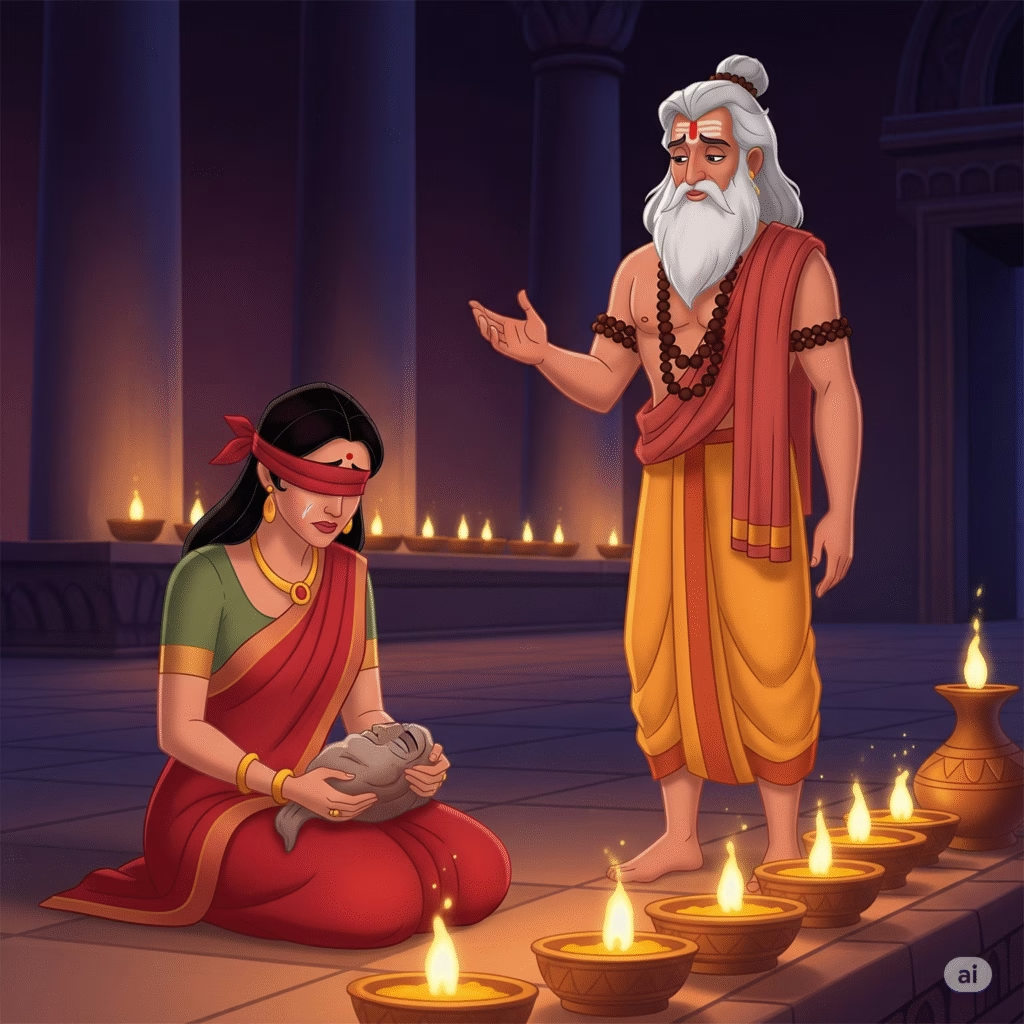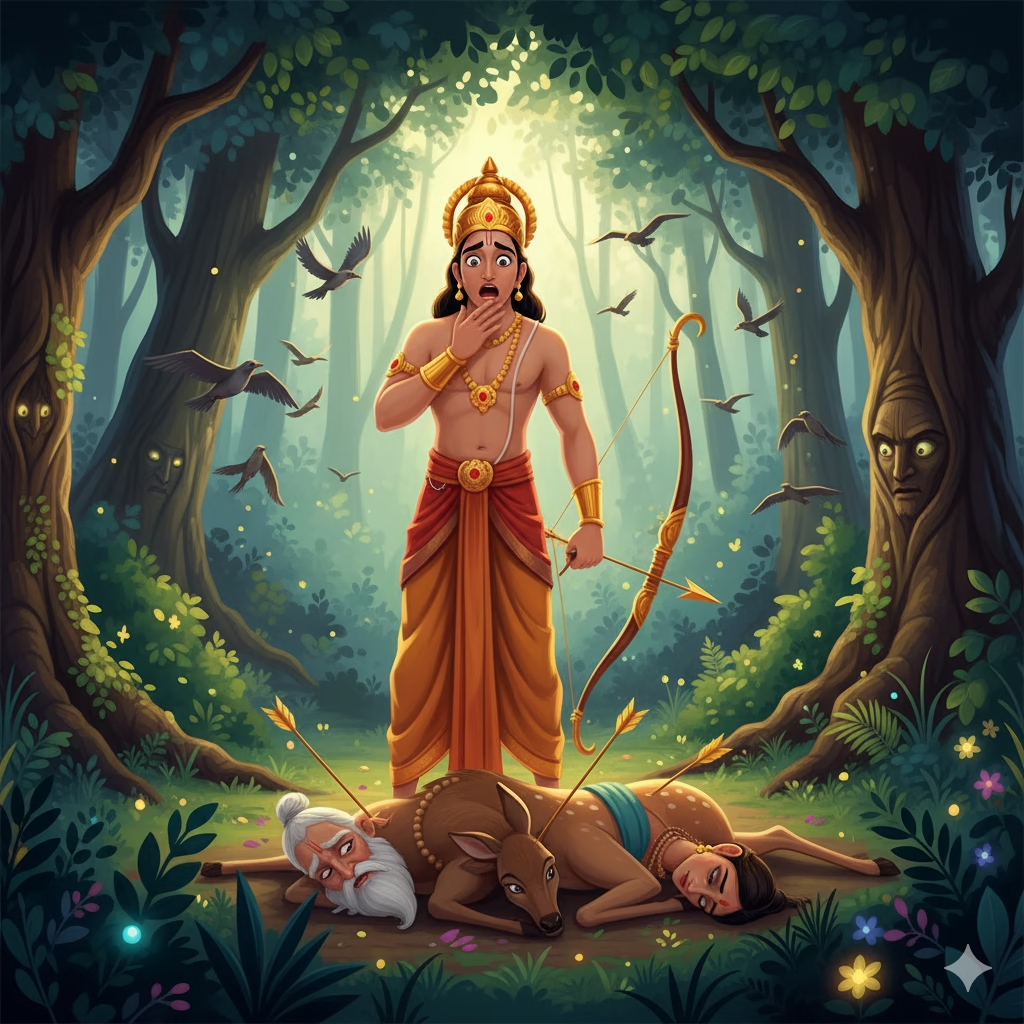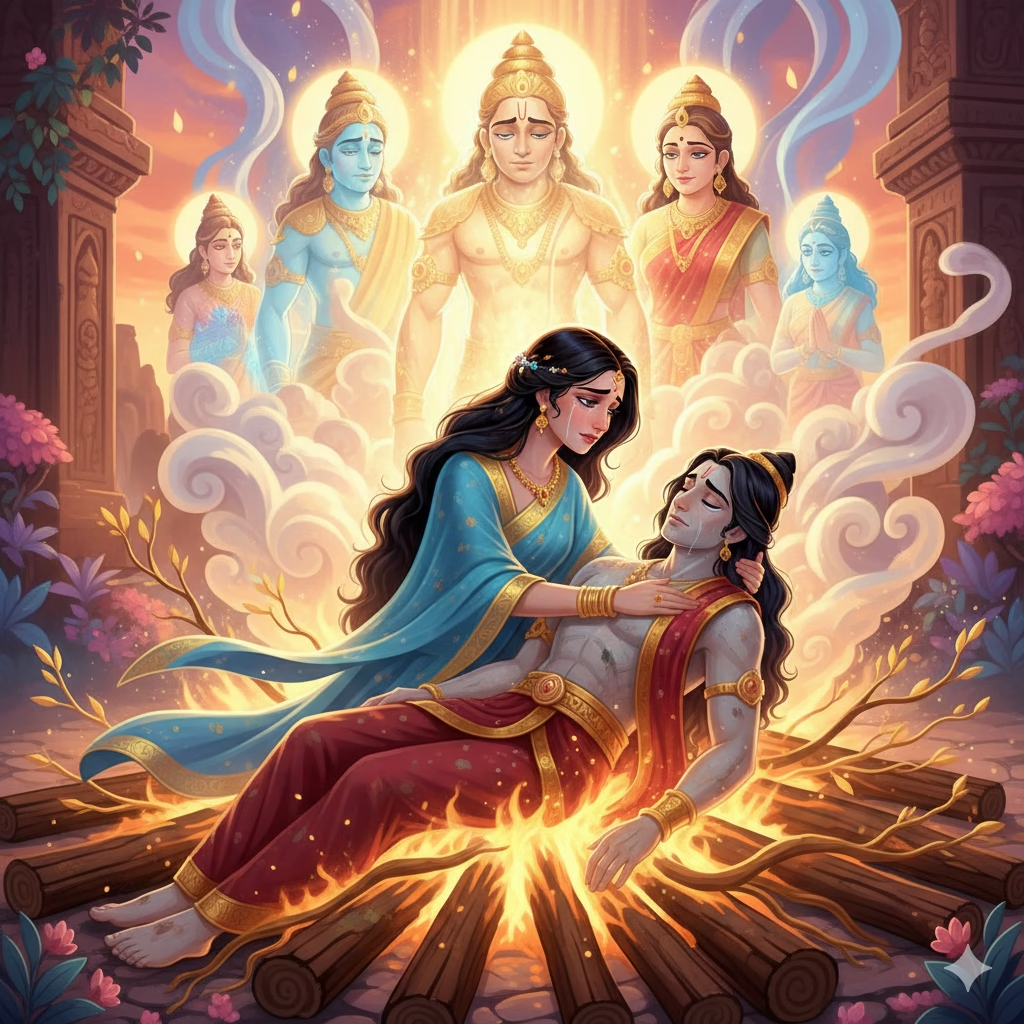In the previous blog, we saw the palace of Hastinapur, once echoing with the pride of princes, now fall into a solemn hush. Vichitravirya was dead, childless. Satyavati, who had once dared to dream of a lasting legacy, now stood before the daunting silence of an heirless throne. A mother’s anguish transformed into a queen’s resolve. She remembered her secret—the son of sage Parashara, born in mist and mystery: Krishna Dvaipayana Vyasa.
With quiet urgency, she summoned her elder daughter-in-law, Ambika. According to the ancient niyoga tradition, Satyavati whispered of a brother-in-law who would arrive at midnight. “Be calm. Be respectful,” she instructed. The young widow, obedient but anxious, lay silently in bed—her heart fluttering in fear, her thoughts wandering to Bhishma and the fallen line of kings.
And then, he arrived. Vyasa entered with the aura of an ascetic and the scent of raw wilderness. His form was dark, matted with dreadlocks, and his eyes shone with a radiant divine fire. Lamps flickered. The room quivered. Ambika, trembling with terror, closed her eyes tightly. What emerged from that night was a prophecy fulfilled and a consequence born—a son, Dhritarashtra, destined to be mighty and wise, but blind. “Because she shut her eyes in fear,” Vyasa told Satyavati, “so will her son be born without sight.”
But a blind king? Unthinkable. Satyavati, relentless in duty, approached Ambalika next. Once again, Vyasa came. This time, the queen, Ambalika, turned pale with dread. Her fear didn’t blind her, but it drained her of colour. Vyasa emerged and declared, “Her son shall be born pale; Pandu shall be his name.” Still, Satyavati longed for one more heir. She again asked Ambika to meet Vyasa—but this time, the queen, overcome by dread, sent a maid dressed as herself. The maid welcomed Vyasa with warmth, dignity, and grace. Pleased, the sage blessed her: “You shall bear a son of great wisdom and dharma.” And so was born Vidura, wise and just, the soul of justice itself.
But when Vyasa learned of the deception, he did not curse. He simply told Satyavati the truth. The child of a maid would never sit on the throne, but he would guide kings with the clarity they lacked. Vyasa, having fulfilled his mother’s command, vanished into the forests once more, leaving behind three seeds of fate: Dhritarashtra, Pandu, and Vidura. None born in love, all born in duty, fear, or trickery—and all destined to shape the epic to come.
This chapter is not about passion or romance. It is about the painful ways duty manifests itself when the heart resists. Vyasa wasn’t a lover. He was a symbol of responsibility forced into intimacy. The queens weren’t companions. They were vessels of lineage, unprepared for the face of their fate. And Satyavati? She was a mother who had once broken boundaries for her desire, and now, she broke hearts to protect her dynasty. Sometimes, our vows trap others. And sometimes, we fulfil duties not through love, but through discomfort. But destiny moves forward, regardless of how we feel about the path.
In these moments, Dharma trembles quietly. Not because someone defied it outright, but because fear pretended to be dharma, and we let it. In the story we just unfolded, every character stood on the brink of dharma, but each was shadowed by fear: Ambika closed her eyes, not in disobedience, but in dread. Yet that single act shaped the blindness of a king. Ambalika turned pale, her fear leaving a stain on the destiny of her son. Even Satyavati, in her desperation, pushed niyoga not from a place of clarity, but panic. She feared the extinction of her lineage more than she trusted time or truth.
And what does fear do? It doesn’t scream. It whispers, “This is the only way.” It dresses up like responsibility, loyalty, and urgency—and tricks even the wisest into thinking, “I had no choice.” But dharma always offers a choice, even if it’s hard. Fear removes choice. And when there is no choice, there is no true dharma—only obedience, only survival.
Fear is the most cunning enemy of dharma. Because it doesn’t fight dharma directly. It replaces it silently, and by the time we notice, the damage is done.
Journaling Prompt
- Have you ever fulfilled a responsibility that felt deeply uncomfortable or unfair?
- Was it truly dharma—or just fear wearing the mask of duty?

